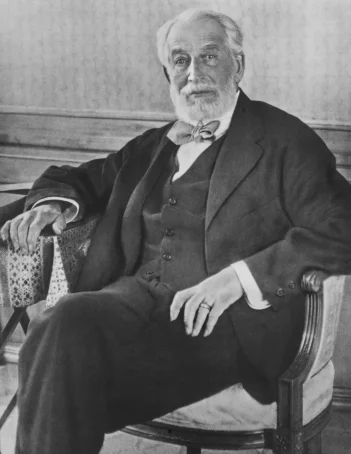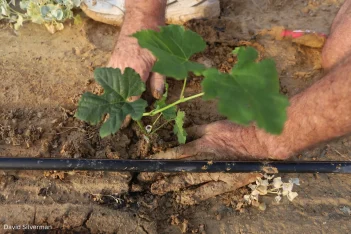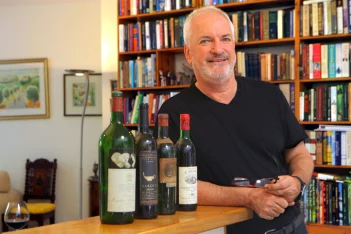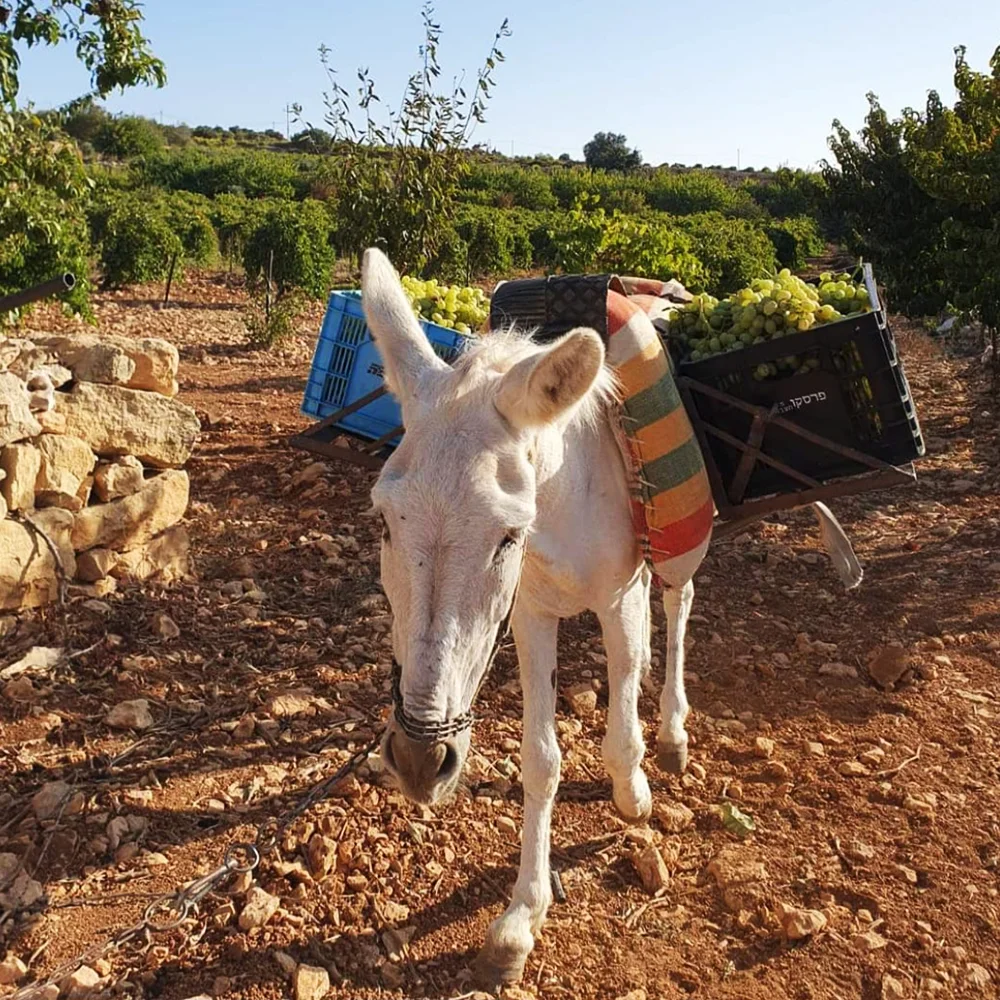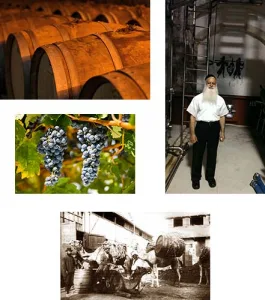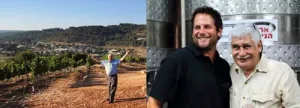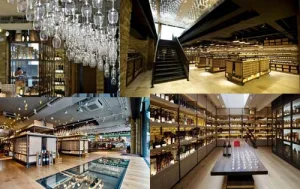One of the problems we have in our region, is that everyone hates the other. Deeply. It is a hate and mistrust that has been nurtured, matured and aged for generations. Families have inherited the prejudice with their mother’s milk. I am reminded of Moshe Dayan’s eulogy of Roi Rothberg from Nahal Oz from nearly 70 years ago. Not much has changed. They do not see our story and suffering, and I must be honest, we do not see theirs. An eye for an eye makes the whole world blind. It is not just us, our whole Eastern Mediterranean region, is divided by religion and centuries of war. The Greeks and Turks have deep issues. Their disputes are even older than ours. Cyprus is still a divided country. As for us, our relations with our neighbors have been on a downward spiral, especially since Hamas took over Gaza and Hezbollah high jacked Lebanon. Hezbollah and Hamas now set the tone. Optimism is out of the window.
The various wine folk in the East Med countries may be broadly put into religious categories. The Greek and Cypriot winemakers are Christian, the Turks generally Muslim. The Lebanese and Palestinian winemakers tend to be Christian and of course, the Israelis are mainly Jews. This on its own creates spice and variety, but regrettably most of the wars are fought in the name of religion. In what other wine regions in the world is religion even relevant?
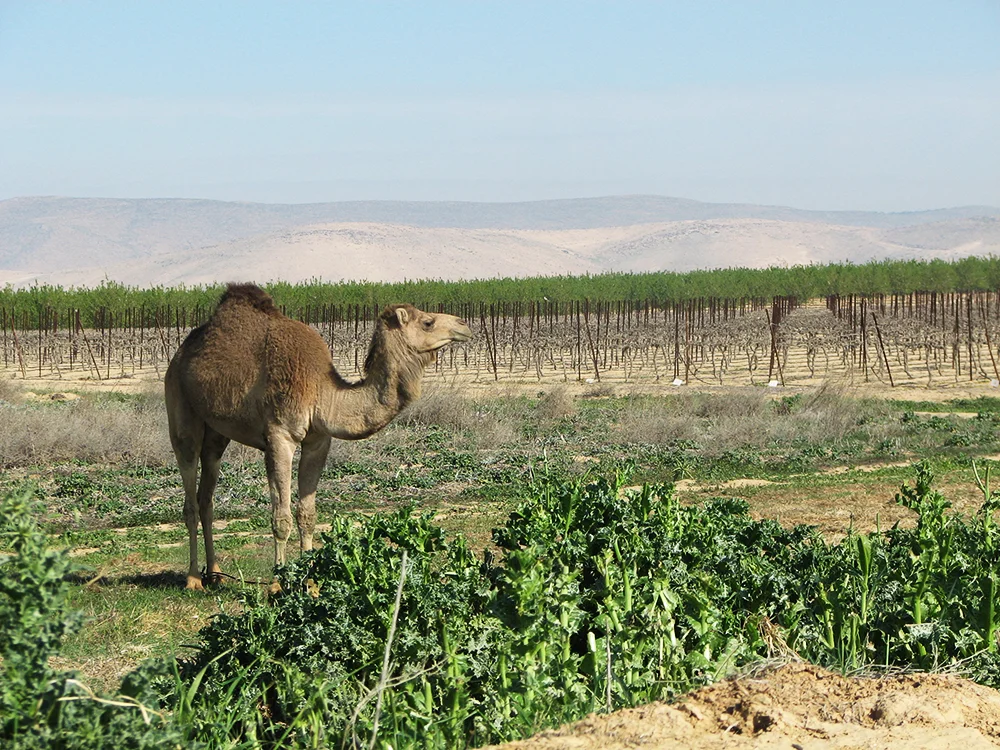
As far as Israel is concerned, our situation is not great, but not all of it is our fault. The new definition of Chutzpa is invading your neighbor, slaughtering and kidnapping their people, and then playing victim when your neighbor reacts to defend itself. All Hamas has to do is release the hostages and put down their arms, and the war would be over in a jiffy, but that is a step too far. In the meantime, the world delights in the atrocities, repeating like mindless sheep the mantra “from the river to sea.” Shockingly the whole international campaign is not to advance the lot of the Palestinians but to obliterate Israel. Certainly, Israel has become the new Jew of the 21st Century. It reminds me of the Tom Lehrer song: National Brotherhood Week. The chorus could not be more appropriate to describe today’s febrile atmosphere:
Oh, the Protestants hate the Catholics,
And the Catholics hate the Protestants,
And the Hindus hate the Moslems,
And everyone hates the Jews.
The uninformed, ignorant ultra-woke left, looking for a cause, and the fervent Muslim takeover of the west (have you heard of Eurabia?) find Israel an easy target. The amazing thing is that they are not really concerned with Muslim suffering. The slaughter in Syria and Yemen did not move them to lift a finger, but when the Jews are involved, it is genocide (despite the fact the Palestinian population is growing) and colonialism (ignoring the historical fact that the Israelites and Judeans were here first.)
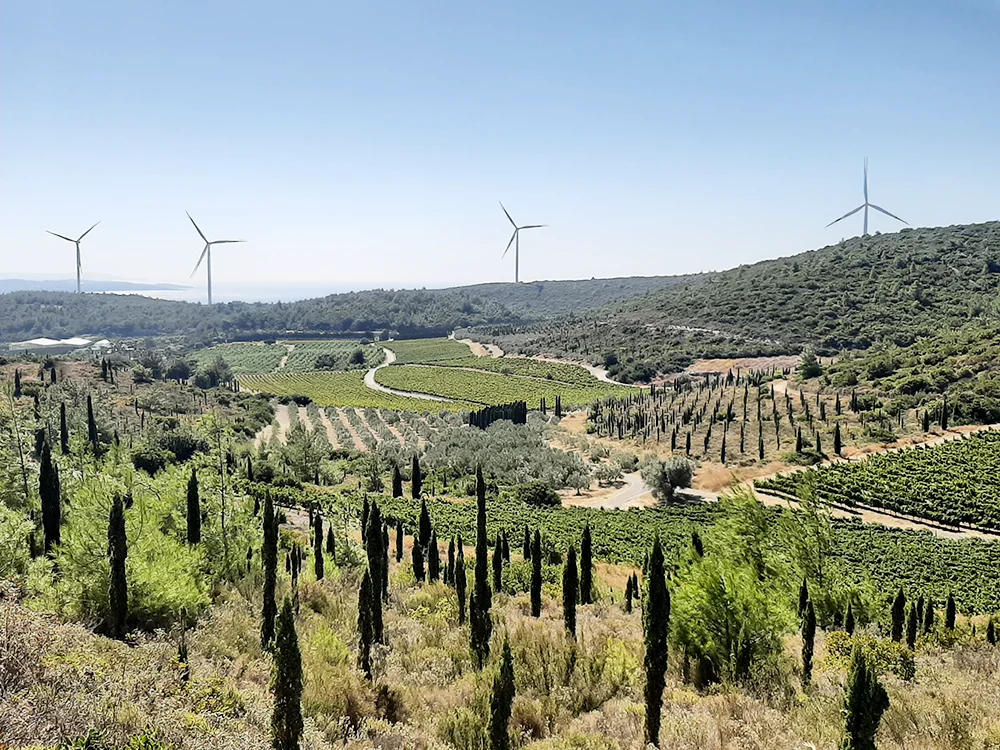
I have often tasted and admired the wines of Lebanon and Turkiye. I know some of their wine professionals. After October 7th, this is regarded by most Israelis as cavorting with the enemy. I was stranded in Turkiye on that black day. We could not get a flight home for two days. After the slaughter, President Erdogan was indecently quick to support the violence and ally himself with the terrorists. One of the most corrupt, anti-democratic figures in world politics, he decided to rant in support of Hamas. He set a tone. The signs in taxis and shops refusing entrance to Israelis reminded me of the 1930s. Racism spreads like a rash. Suddenly the import of Turkish tomatoes here became a major issue. I have an article already written about Turkish wine, which became a no-go area. I relegated it to the pending tray and put the idea on the back burner for now.
By aligning himself with Hamas and Hezbollah, Erdogan should be bracketed with them. These three regional players all have something in common. Fundamentalism, Islam, supporting terrorism, anti-democratic … and they not only do not drink wine, but are actively anti-alcohol. The wine guys of these regions also have something in common. The winemakers of Turkiye I have met are fiercely against the regime, but it is true, only in quiet conversations and off the record. People can disappear or be thrown into jail for less. Likewise, after decades of meeting Lebanese winemakers at exhibitions, I know some of them hate what Hezbollah has done to their country. But to admit this too vocally would not only be foolish, but exceedingly dangerous. I am certainly not saying they are Israel lovers. The opposite is the case, but wine gives a chance to talk about something else than the politics.
I am in contact and maintain an interest in some Palestinian wineries. Why wouldn’t I? I have a fascination with wine from our region. They are close by. We share a terroir and a history. Like everyone else, my confidence has been severely shaken. An overwhelming majority of Palestinians support Hamas, but I like to hope that not every Palestinian supports fundamentalist Islam and the wanton violence of Hamas is not in everyone’s name. We should not forget that Arabs and Muslims were also amongst the victims of October 7th and we should be sensitive to the plight of the loyal Israeli Arab. Their situation is never easy. They have to tiptoe over a narrow bridge, which is particularly fraught at this time.
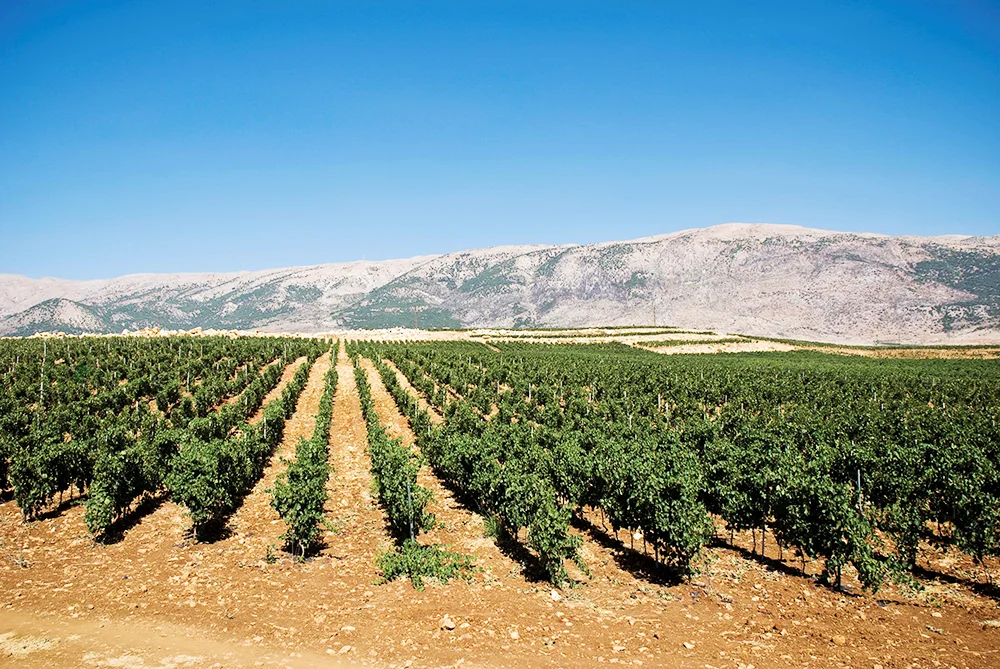
Anyway, I maintain my interest in wines and winemakers of the Eastern Mediterranean and the Levant. As far as I am concerned the wine producers of Lebanon, Turkiye and the Palestine Authority are the beacons of light of a civilized world, against which fanatical religious craziness founders and withers. So, they should be encouraged. It is a nice feeling when you meet someone from a different world, but the differences are smoothed over by the glass in your hand.
The East Med countries share many similarities. Mezze on small plates, anise flavored spirits (Arak, Raki and Ouzo) and mud coffee for a start. The cuisine of the various countries has similar roots. It was not so long ago all were part of the Ottoman Empire. Now I am interested in wine, but particularly in wines from this region. I think it is the most dynamic, fascinating wine region in the world. It represents the cradle of the grape and wine culture, and in the last 25 years there has been an explosion in quality. The countries share great similarity of terroirs; Stony, mountainous vineyards with pronounced influence of the sea. Nearly all the countries (except us) have an overflow of indigenous varieties. Yet each country is very different (we have the desert) making the mosaic extra interesting.
I have always worked to advance the Eastern Mediterranean as a quality wine region. In the early 2000s I had big plans to create a consortium “Wine Without Borders”, featuring one winery from each of the five main East Med wine countries. Carmel was going to be the Israeli winery. The purpose was to increase awareness of East Med wine, and strengthen the international marketing of the wineries concerned. “Handcrafted Wines of Israel” was founded during this period. It was the first time Israeli wineries worked together to advance Brand Israel. Idealism and creativity ran amok, but the idea of an East Med consortium was before its time. However, I was convinced it was important, groundbreaking and could work. I even arranged sponsorship at the IWSC in London for “The Trophy for the Best Eastern Mediterranean Winery.” All this, was to advance the image of the East Med with regard to wine.
I had learnt the importance of “stronger together” earlier, when wine manager of Bass Charrington’s hotel chain in the UK, in the 1980s. When I put both Chateau Musar and Yarden on the corporate Wines Lists, under the heading “Eastern Mediterranean”, suddenly it became of interest. The Hotel & Caterer described our wine lists as “way ahead of its competitors.” This exotic addition was mainly responsible for that. No-one would have noticed either Israel or Lebanon on its own, but together, it was a talking point.
Thus, when I moved to Israel I was prepared. I secured a few key visits to the region by important wine critics in the early 1990s by including both Israel and Lebanon on the itinerary. They were not interested in visiting only Israel and they had to take an extra day to travel between the two enemy countries via Cyprus. However, it worked. It was so much better for them to visit the two countries, rather than one tiny reasonably insignificant wine country. It gave more meat (more potential stories), the fun exercise of comparing and contrasting, and the feeling of visiting a wider region rather than just a country.
I realized that Israel in export markets was languishing in what is the derogatorily described category known as Kosher. This set me thinking. Israel is not an island and Kosher is not a country. We are part of a wine region and a unique one too. They were making wine here, thousands of years before the vine reached France & Italy. I noticed Greek and Lebanese wines were generally listed as afterthoughts in some of the most famous wine stores. They were put under bland, meaningless, unhelpful headings like “Others” or “Rest of the World.” It was obvious to me that Israeli wine should appear with Cypriot, Greek, Lebanese and Turkish wine under the heading: “Eastern Mediterranean.” For instance, the wines from Carmel (Isr), Kavaklidere (Tur), Kamanterena (Cyp), Kourtakis (Gr) and Ksara (Leb) should be on the supermarket shelves together. At the same time, Castel (Isr), Chamlija (Tur), Gaia (Gre), Musar (Leb) and Zambartas (Cyp) should be listed together on the same wine list and displayed together on shelves of wine stores. Instead of being homeless, they should be bracketed together proudly as East Med wines. In addition, if Israeli wines were doomed to be under the heading Kosher, the objective was at least to brand them as “Israel” instead.
So, for thirty-five years I have been promoting and talking up the East Med as a region. The “Wine Without Borders” initiative crashed on the rocks, but paradoxically, in an evolution rather than revolution, the principle has been accepted by many importers, distributors and retailers as a logical and sensible approach. Some have become specialists in our region. The terminology differs depending on the wineries involved. Eastern Mediterranean is all encompassing. “The Levant” can refer to Israel, Lebanon, Syria, Jordan and the Palestine Authority. And sometimes, the group of wineries is referred to as the “Ancient World”, especially if Armenian and Georgian wineries are added to group.
In meantime, the term Eastern Mediterranean has finally received acceptance as a collective name due to regional politics. When Cyprus, Greece and Israel became allies, the use of East Med suddenly became commonplace; The “Eastern Mediterranean Gas Forum” for instance. It is no longer the case that one has to explain which countries are involved. The use of the term has created a new familiarity.
In Israel, we are still stunned by the numbers of those slaughtered and kidnapped on October 7th and the high numbers of our finest youth killed and maimed in the subsequent war, which is ongoing. It is a sobering thought that the biggest failure and disaster in our 75 years of existence, occurred under the watch of our most right-wing government ever. No doubt, October 7th was the most disastrous day for the Jewish people since the Holocaust. Israelis find it hard to believe where we are and how we got here. The depth of the catastrophe will ensure the leadership can’t run and hide from taking responsibility for ever.
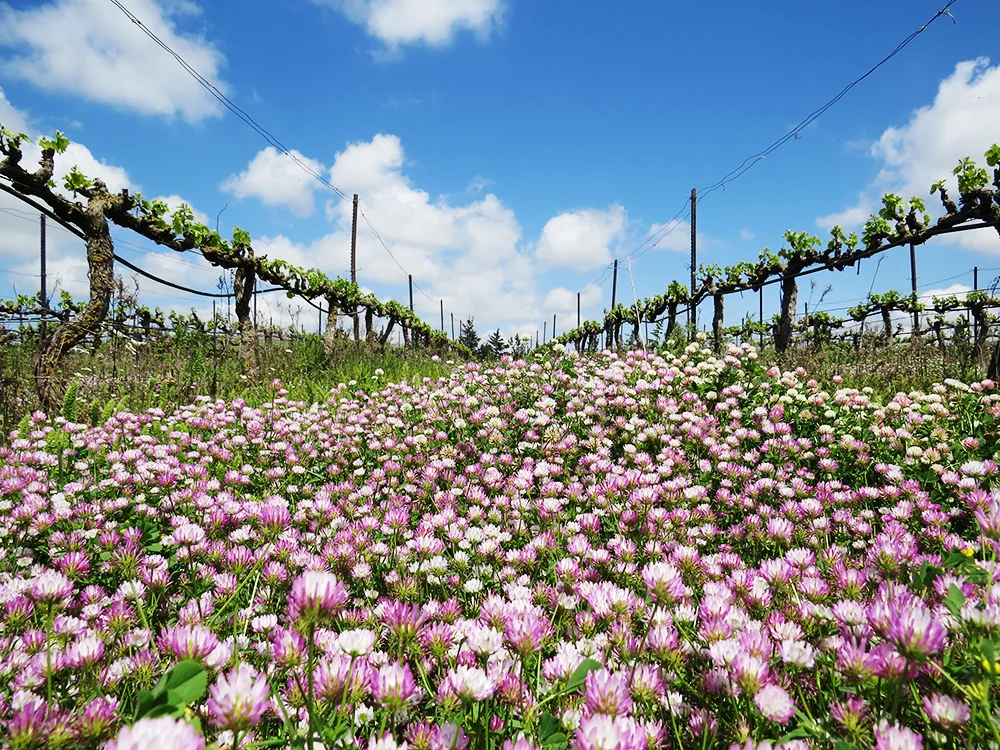
Israeli wineries have been particularly badly hit since October 7th. Under these circumstances sometimes routine activities like pruning or even making the wine, has become an enormous challenge. The Upper Galilee and Western Negev have particularly suffered from being respectively under fire from Hezbollah and Hamas. Residents from there, including many working for wineries, are refugees in their own country. I am reminded of a quote from Tim Atkin MW, which he wrote in 2010 after a visit to Israel: “In such a climate, tending vineyards and producing wine is an act of courage and of optimism. I have enormous admiration for the majority of Israel’s winemakers…. Surrounded by anger, dogma, devastation, deprivation, mutual suspicion and….politics, they offer the possibility of hope for a better future.” What was true then, is even more true today.
So, in today’s world of division and strife, I support the winemakers, even in those countries that do not support Israel. Wine is a meeting place, a bridge and a passion shared. It presents an opportunity, which possibly does not otherwise exist. Keep talking! May the winemakers of the world unite!
Adam Montefiore is a winery inside, turned wine writer, who has advanced Israeli wine for 35 years. He is referred to as ‘the English voice of Israeli wine’ and is the Wine Writer for the Jerusalem Post. www.adammontefiore.com












